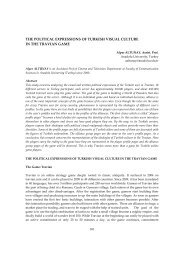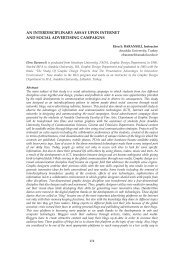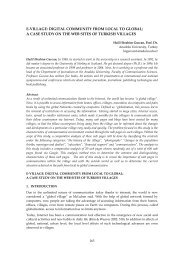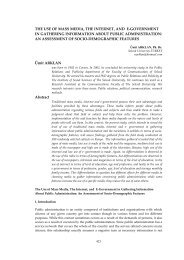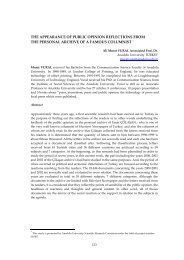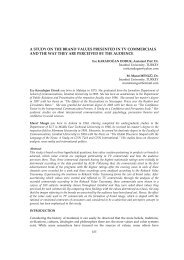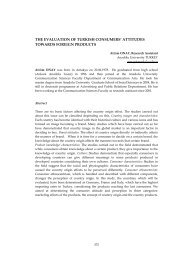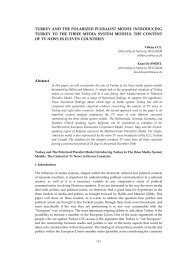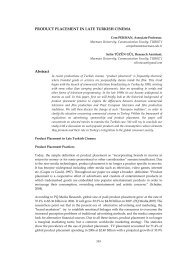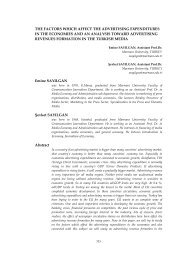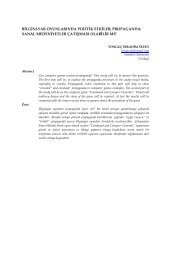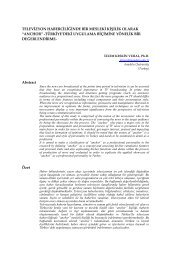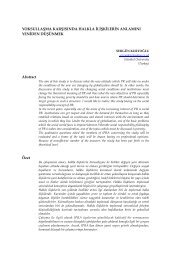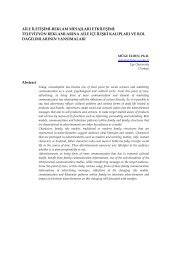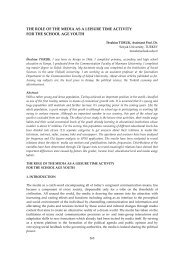SURFING POLITICS: INTERNET USE AND POLITICAL ACTIVISM ...
SURFING POLITICS: INTERNET USE AND POLITICAL ACTIVISM ...
SURFING POLITICS: INTERNET USE AND POLITICAL ACTIVISM ...
You also want an ePaper? Increase the reach of your titles
YUMPU automatically turns print PDFs into web optimized ePapers that Google loves.
examine this, we run OLS-Regressions for every single country. In the analyses, we control<br />
gender, age, education and political interest. Table 6 shows the results.<br />
With respect to our control variables, we see in all of the 20 countries a strong and significant<br />
influence of political interest on activism. In most of the countries, every of them but Slovenia,<br />
we find that higher educated citizens are politically more active. In some countries of the west<br />
and north, younger people show higher levels of activism. In the case of gender, we found that<br />
male respondents are not always the most mobilized in terms of political participation, a fact<br />
that can clearly be verified with the positive or negative sigh of the ß standardised coefficients,<br />
although only in 7 of the 20 cases statistical significance could be found.<br />
More important, the influence of exposure to media is quite mixed. In most of the countries (all<br />
of them but Belgium, Spain, Italy, Hungary and Slovenia), we find a negative influence of<br />
watching television on political activism: The higher respondents’ exposure to television, the less<br />
they are taking part on the political process through non-conventional ways of participation.<br />
Hence, in none of the 20 countries there is a positive influence of watching television on<br />
activism.<br />
Regarding the printed media, in six Western democracies (Denmark, Finland, France,<br />
Luxembourg, Netherlands, and Norway), we find a positive influence of reading newspapers in<br />
general on activism: The higher respondents’ exposure to newspapers, the more politically<br />
active they are. The same holds true in two Eastern European countries (Hungary and Poland)<br />
and in two of the Southern European countries (Portugal and Greece).<br />
In what concern to the new media, in every country but two (Luxembourg and Portugal) there is<br />
a significant connection between the use of the Internet and levels of political activism, and in all<br />
of the cases this is positive. The more citizens “consume” Internet, the more willing to take part<br />
on the political process through non-conventional actions.<br />
In general, at the aggregate level, Internet is the most influential media outlet on the level of<br />
people’s political activism. Taking the mean of the coefficients as a reference, this connection is<br />
higher in new media (.115), while is significantly lower in the case of television (.073) and<br />
newspapers (.044). Also the proportion of countries showing statistical significance is pointing in<br />
the same direction: in the case of television 5 countries out of 20 are not presenting significance,<br />
when in the case of newspapers this is increased to 10, and in the case of the Internet only in 2<br />
countries of the sample media exposure is not statistically connected to activism.<br />
Taken together, H3 – stating that differences between the three groups of countries are larger<br />
than differences within the groups when the influence of media exposure on political<br />
disaffection is concerned – proofs to be incorrect. If there is an influence of exposure to media on<br />
activism, it is not only in the same direction within the groups, but also in the same direction<br />
between the groups. That is to say that even if the levels of activism and media exposure vary<br />
between the group of countries, the connection between media consumption and nonconventional<br />
ways of participation is parallel.<br />
243



